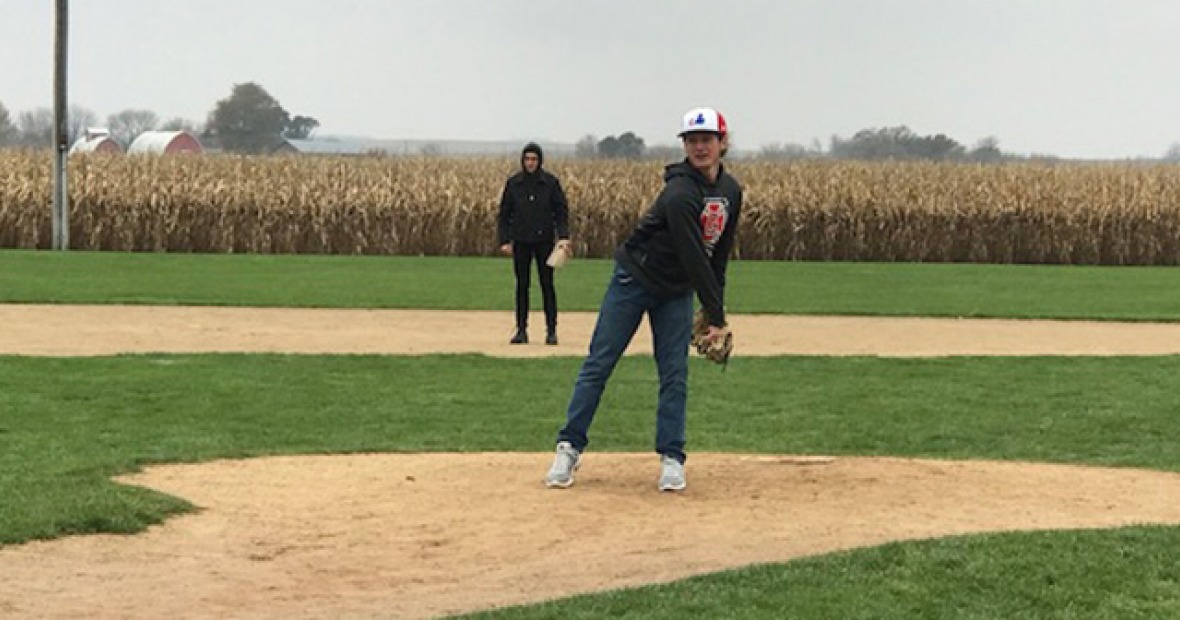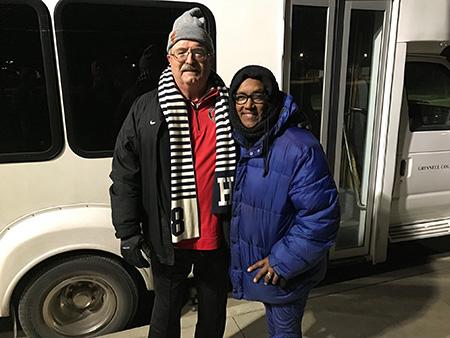American Road Trip
When students enrolled in the new interdisciplinary course The Power of the American Journey, they expected to analyze the travels and experiences of others, through insightful readings of John Steinbeck’s Travels with Charley to Thoreau’s Walden, from Jack Kerouac’s On the Road to Blue Highways by William Least Heat-Moon.
What the students hadn’t anticipated was introspection and reflection on their own life journeys. But for Professors Will Freeman and Kesho Scott, that was one of the main goals for the co-taught American Studies Special Topics course.
Nicole Arredondo ’19 chose the course because “as a physics major, I don’t often get the opportunity to talk about topics regarding the human self. One of the main goals for the course was to be able to use the journeys that we were learning about and apply them to our own lives and experiences. This meant we had to be open and honest with ourselves and our classmates. Will and Kesho did an amazing job of creating a space where we felt comfortable sharing our stories as they shared their own.”
Inner and Outer Journeys
Freeman, associate professor of physical education and head men’s track and field and cross country coach, and Scott, associate professor of sociology, had both written earlier books about self-growth and personal philosophies. They found that as they collaborated to create the course, they also had “more in common spiritually and intellectually.” Freeman and Scott both wanted “students to know themselves in a productive way.”
“My own journey to Grinnell to teach social movements shaped me and changed my life,” Scott says. “So teaching about others’ journeys and shaping the American experience seemed natural to me. We wanted to tell students ‘Don’t wait until you get to be our age to reflect on your own journey.’”Class discussion was often initiated by students’ two-minute commercials about what they’ve learned and experienced, a tool Scott uses called embodied learning. “We helped students to ask ‘How is my education aligning with my journey? What is my inner voice and have I listened to it? What is the cost if I don’t?’ Thematically, the course is about growing as a person.”
For Arredondo, this was “the first course where, instead of learning about something outside of myself, I was forced to use what I was learning to look within. It gave me a better understanding of the people who have made a mark on American history, the people around me, and of myself.”
Also on the syllabus was a re-enactment of an underground railroad slave journey and a trip to Iowa’s Field of Dreams, the site where the baseball movie of the same name was filmed. Students also kept journals and gave presentations about how history and current events shape these journeys.
For art history major Jackson Schulte ’20, this mix of experiences made “the class differ from every other course I've taken at Grinnell. We learned to be more cognizant of the ways in which different people make their way through America, participating in the same political and economic systems, yet the opportunities to navigate through it all vary so much.”
Planning a Road Trip
During the second half of the semester, students mapped a new American journey for Freeman, whose book The Quest was about a cross-country motorcycle trip he took with his son. Freeman will embark on Commencement Day — a driving trip through 48 contiguous states in 75 days. Working in pairs, students sought to differentiate each state, avoiding the beaten path and planning for Freeman to visit as many national parks, spiritual sites, and “unique places” as possible.
Freeman encouraged students to “use their intuition to guide the route and to continue to ask how the trip route intersects with American history, diversity, and spirituality.” He adds, “The students are sharing in the journey by sharing their journeys.”
During spring semester, independent study students will develop a website and blog about the trip, and during the summer a student will update Freeman’s daily blog and provide real time GPS of his journey progress.
Freeman plans to use the trip to write a second book about what he sees and hears across the country.
Scott, too, says she has been “re-invigorated by this course and the opportunity to look differently at our teaching. I want to thank the College for supporting us in developing this course to help students think about their own journeys and the American road trip because we are all descendants of travelers.”


